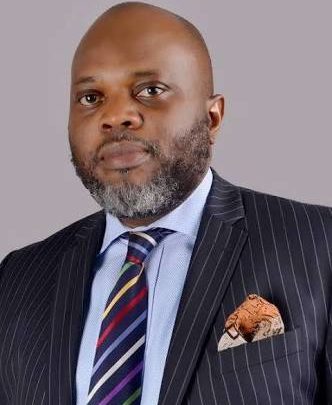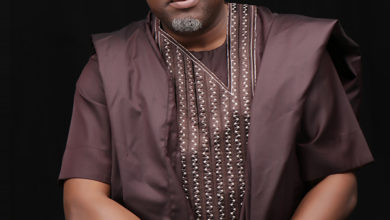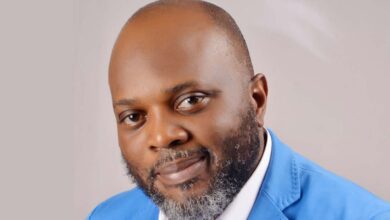
COGNITIVE BIASES AND STATEMENTS AROUND NIGERIA’S ECONOMY – A CASE STUDY OF NESG’S RECENT ASSERTIONS
The other day I was in this particularly tough interview with one of Nigeria’s finest, Mr Charles Aniagolu on Arise TV. From get-go, the narrative he painted was about a dying economy where ALL the indices pointed southwards. The only problem was that from all verifiable news online and in traditional media, very few of the indices around the economy were negative. In fact, a good many are positive. As at that day, contrary to Mr Aniagolu’s emphatic and eloquent statements, the Naira was performing relatively strongly, and all the newspapers had picked up on the fact that prices of food and other products were actually falling. I regretted not switching my phone off ‘flight mode’ to read out the headlines for Mr Charles and Nigerians, but there is always another day. Indeed just scanning the news now, I have France 24 reporting “Nigeria; Food Prices Drop During Ramadan”, Nairametrics, on the 8th of March, 2025 reported that ‘Food Prices Drop in Abuja Markets in the First Week of Ramadan”, BusinessDay on the 26th of February 2025 reported that “Food Prices Drop Eases Cost of Living Crisis”, and so on. Yet, in the minds of many commentators, prices were rising!
Anyhow, I believe gave a fairly strong rebuttal right there even though I had to literally take over the interview at some point lest my voice be totally drowned, and I noted that since Mr Aniagolu juggles his time between the UK and Nigeria he may not know as much as I do about current realities as I interact with the grassroots daily in my interpretation of my current duty in the economic space. Still, how do our people and many analysts interpret the phenomenon of falling food prices and falling fuel prices to mean any other thing than better standards of living for Nigerian? Everybody knows that the price of petrol is also falling across board and is likely to fall some more since global prices are depressing, and the reforms in that sector has led to good competition and a boost in local refining. How come the famous ‘man on the street’ is not seeing any hope and is complaining bitterly about not seeing any improvement? Yes, there is still a yawning income gap in Nigeria even though we are not one of the most unequal income countries even in Africa. There is much work to be done to ensure that new economic growth filters through to some of our most vulnerable people but I wager that there is progress from when the reforms bit hard last year. The rest of the bitter comments and dismissal of government efforts can only be explained through the prism of cognitive bias and heuristics.
Cognitive biases are described as “systematic thought processes caused by the tendency of the human brain to simplify information processing through a filter of personal experience and preferences” (TechTarget). This means that we sometimes/often have our own interpretation of reality and can choose to totally ignore hard evidence. Aren’t we a deeply superstitious people anyway? Now, combined with what psychologists call heuristics or shortcuts that we all use to reach quick conclusions which may often be wrong, cognitive biases in an age such as we are in – where information dissemination is at supersonic speed, where everyone has a platform on social media to voice out their undercooked ideas and raw, self-centred feelings on a whim, could be very powerful and dangerous. And in a society like ours, cognitive biases and heuristics often define the trajectory of the economy, as we spread misinformation, fear, and the rest. There is an urgent need for us to continue to educate ourselves on the nuances of these phenomena, because – politics apart – we have just one country to build and one economy to grow. It should be everyone’s joy if the economy does better, if standards of living improve for the majority, if poverty and illiteracy ebbs to a minimum and if Nigeria’s image improves substantially among the comity of nations. However, it isn’t. Some Nigerians take hardline positions so long as ‘their man’ is not in power. Some don’t mind dragging Nigeria’s name through detritus and mire even though they themselves may be thriving financially or economically. Some rationalize their permanent negativity by saying that they care for the have-nots. But how does spreading fear and despair, lying, painting a deliberately exaggerated and sordid picture, or ruining the name of your country help the poor and needy? Nigeria is however an unfortunate victim of bad optics – mostly projected to the world by her own people.
Let’s spend one more paragraph on heuristics and cognitive bias. There are some very common heuristics that will enable first-timers to the subject to appreciate what I am talking about. One of them is the idea we usually have in our head that yesterday is always better than today. But is it? Are we wired to always complain about the current situation of things and to rue yesterday? Because if we check calmly and logically, in many instances the life we live today is actually better than the ‘yesterday’ that is already confined into memory, losing its edge. Just that we take today (the present) for granted. Another heuristic and cognitive bias is the idea that the grass is greener on the other side of the fence. For some reasons we are wired not to appreciate that which we have and to covet someone else’s possessions. This bias is at the root of many of our emigration stories. No one can convince someone who believes that life is easier abroad from leaving Nigeria. Oftentimes, when our people arrive abroad, they soon find out that abroad was hyped, or that it presents with a different set of almost insurmountable problems. But do we learn? No. Because of heuristics and cognitive bias.
As it pertains to Nigeria, the two heuristics described above are alive and well. But add to that the innate feeling shared by millions of Nigerians – unfortunately many who should know better are also victims – who believe that everything is falling apart in Nigeria and that Nigeria is dying. These folks also fall into the trap of using superlative words to describe this country – like ‘Nigeria is finished! This country is dead!’ etc. This I believe was at the roots of my interviewer’s strong views, as well as the Nigerian Economic Summit Group’s bold statement that all of 30% of the NMSMEs (Nano, Micro, Small, Medium Enterprises) in Nigeria simply curled up and died due to tough economic conditions in 2023 and 2024, and that a whopping N94 Trillion of value was lost in that same period due to the divestment of multinationals and local business closures. This assertion has been broadly shared in Nigerian and foreign media and therefore is deserving of some level of scrutiny, for verification. The issues are:
- What were the sources of NESG (Nigeria’s foremost private sector think-tank)’s data wherein they were able to ascertain that 7 million mostly informal or nano companies closed down in two years?
- Rather than make such heavy statements (especially on the loss of N94 Trillion) – which were not included in the report being presented – why not show workings so that people will follow your logic?
- What kind of research did the think-tank do that did not present the flip-side? Is NESG aware that all over the world, and in Nigeria in particularly, a period of tough reforms also witnesses the establishment of many nano and micro enterprises? So, how many such enterprises were established in the two years under reference to balance out the ones that closed?
Just as in the case of the Manufacturer’s Association of Nigeria (MAN) report in March 2024 that 767 manufacturing companies closed down in 2023, the NESG report trips the intellectual hurdle by not stating the other side. Good intellectual work would have demanded that a net figure be presented or that the numbers of new companies – which are an inescapable fact – that came up within same period be stated. In another report done by the Punch Newspapers in October 2024 titled “Full List of Firms that Left Nigeria from 2020 to 2024”, see: https://punchng.com/full-list-firms-that-left-nigeria-from-2020-to-2024-over-economic-challenges/, the newspaper chose to be silent on the devastating impact of the Covid pandemic on businesses all over the world in 2020 to at least 2022, but would rather skew its report to suggest to its readers that the fault was from the current government. More so, no consideration was given to the long-tail effect of events like Covid i.e. how many years we need to entirely get rid of its ill effects.
Back to the statement by NESG. The Bola Ahmed Tinubu government swept into office on May 29, 2023. Mr President started taking bold decisions from Day 1 by asserting that fuel subsidies were a thing of the past. He was aware of the hemorrhagic effect of decades of fuel subsidy payment and scams on the country’s finances as a professional accountant and he needed clarity as per how much he had in the treasury to plan with. Soon after, the reforms around the Naira kicked in, alongside major reforms at the Central Bank of Nigeria where a runaway Ways and Means Advances system was wrestled down. Nigeria had to find a way to resolve N30 Trillion (an equivalent of our national budget at that time), within a space of months, while also resolving $7 Billion worth of forward transactions on which there had been a near default. These were no mean feat. Since then, the government has been consistent in its focus on job creation, through the efforts of ministers and presidential aides. NMSME financing has never faltered for a day. Nigeria’s Naira GDP has not fallen but grew by 3.4% in 2024, with a 3-years high achievement of 3.84% in Q4 2024, as quoted in the same NESG report. If this is a fact, it negates the cataclysmic scenario earlier painted. We need clarification and corrections.
I believe that the government, and in particular Mr President deserves some commendations for these arduous performances rather that the attempt in some quarters to undo the progress we have made with the wild claims, deliberate ignorance, willful misinformation, and contagious pessimism with which these reports are dripping. Are our news sites and think-tanks plucking numbers from the skies because the heuristic reasoning of their editors and researchers tell them that Nigeria will not make it, is never going to improve and will always get worse? Are they, and those who believe in them destined to miss the bus as that progress has started already? Is this fair to all and sundry, and to our children unborn to whom we owe a better nation no matter our political affiliation? Do they understand that we are writing the history of our own socioeconomic development in real time?
And this is a pervasive problem. The other day I had to answer a gentleman who runs another think-tank on a mutual WhatsApp group when he shared a video which he titled ‘Why Nigeria can never make it’. Those of us who think otherwise have to work extra hard to get past the elocution and well-put-together graphics which proceeds from a wrong conclusion right from the beginning. In that instance, I tried to open the gentleman’s eyes to how a lot has changed already in Nigeria and how 65 years wasn’t enough time to draw such conclusions and why we needed to be a bit fair to ourselves.
THE NESG REPORT SHOOTS ITSELF IN THE LEG
In the case of the NESG report, the rest of its conclusions could not correlate with the bold assertion from the Chief Economist, which the press extracted and ran with. It didn’t seem as if the Chief Economist understood what it would mean for 7.2 million businesses to shut down. Indeed, they should know that nano and micro businesses seldom shut down. They are repositories of the never-say-never spirit of Nigerians. Every other Nigerian – including students – registers one or two businesses or just trades in their name. That is why – rather than the 24 million number stated in the NESG report – the SMEDAN (Small and Medium Enterprise Development Agency of Nigeria) has a database with at least 37 million of them as at 2024. 99% of those businesses are nano and micro. Many of them may be dormant, but as our children grow up in Nigeria, it is a matter of routine for them to register their own. Many of the companies are created to take advantage of quick opportunities – a Nigerian never misses opportunities – after which they may go into abeyance waiting for the next quick move. Most owners of these enterprises never fold up their businesses even until they demise. A sudden disappearance of 7.2 million out of 24 million or 30% of all these companies which are the very livewire of youth employment and GDP will mean that Armageddon happened to Nigeria. Instead, what we see is a resurgence of enterprise and life itself. If millions of companies did not collapse during the total lockdown that was COVID-19, is it when Nigeria is on a fast recovery that they will collapse? The reforms saw a repositioning of efforts and recalibration for enterprises but are now yielding good results. Nigeria saw a record influx of diasporans and foreigners just in December 2024 in what is now known as ‘Detty December’. Nigeria has never been gloomy through 2023 and 2024. What is NESG seeing?
The NESG report could have been more generous with its exposition on the data underpinning such a dire, scary development. If it was, this riposte would have been unnecessary. But we cannot sit by and watch Nigeria being put through unending rigmaroles as painstaking reform gains are recklessly eroded by simple assertions coming from any quarter. The media in Nigeria have almost all taken that antagonistic position and that is evident on every morning show on TV. Private sector bodies have also been that way – even though it is understood that they want to maximize their advantages. Think-tanks must however be more thorough. Their reports must be more contextual, considering every side of the coin, and incorporating the effect of every likely variable.
A SaharaReporters article also caught my eyes in the last few days. It stated that under President Tinubu, Nigeria’s exports and imports have fallen to lowest levels in 3 years. It quotes that in 2021 Nigeria exported goods worth $48.6 Billion and imported goods worth $51.6 Billion (a trade deficit of $3 Billion). For 2022, we had exports worth $67.9 Billion and imports worth $62.9 Billion. In 2023 we exported goods worth $58 Billion, and our imports were valued at $48.5 Billion. But for 2024 our exports were valued at $52.6 Billion while imports stood at $41.2 Billion (a massive $11.4 Billion trade surplus, perhaps a new trade record). Of course, SaharaReporters was silent on this fact, or the fact that the reforms in the oil and gas sector which has resulted in a keener focus on local refining – with great pressure on local producers to fulfil the needs of local refiners – would have resulted to the marginal reduction in trade (especially export of crude oil). Another report in the Punch screamed that Nigeria has imported 105% more petroleum than before, when the spike was largely a result of Naira depreciation and not increased importation. Anything to depress the public, to get more clicks, to sound important and clever, to rile the people, strip them of hope and stoke anger in the land. That looks like the business of some segment of the press these days. Well, we can all do better.
A KNOWLEDGE OF HEURISTICS
I appeal to members of the public to be careful about those who wish to hijack their emotions for selfish purposes. Your emotions (love, happiness, anger, sadness, even hatred etc) are your prized possessions. They are there for use in achieving your positive heart’s desires. Please educate yourselves about these phenomena – cognitive bias and heuristics – so that you may have a keener approach on your goals as the world changes around you. Don’t be fooled. And for those seeking opportunities, you have to be able to identify when a new tide sets in and when to strike. Don’t waste that time in the league of perennial complainants. For all Nigerians I want to assure us all that Nigeria is changing positively. After reforms come productivity. As I stated in the Arise TV interview, at least 20 states as at October 2024 had committed to pay at least the new minimum wage. Many are paying well above. This means a broad swathe of workers are earning more than last year – at least in Naira. This should count for something. The private sector players – most of whom have marked up their products (this is why inflation went up in the first place) should increase their staff salaries. The money must flow. That is how income gaps are bridged. Everybody who has a job must attain new levels of earning. The government’s social security spending will go some way too. And governance is an unending effort. There’s nowhere in the world where they don’t have serious problems. In fact, what we have here could be termed as good, positive problems. Take an aerial view of Nigeria and you’ll find that we have space for development. We have almost a clean canvas to paint a masterpiece of what we want our country to be. We can afford to carve a unique, organic, civilization better than anywhere else in the world. What we shouldn’t do is to constantly undo our nation and self-flagellate for short term gains. And if we don’t harbor any ills against our nation, we should measure our words and actions and ensure they align on the side of those who wish Nigeria well.



